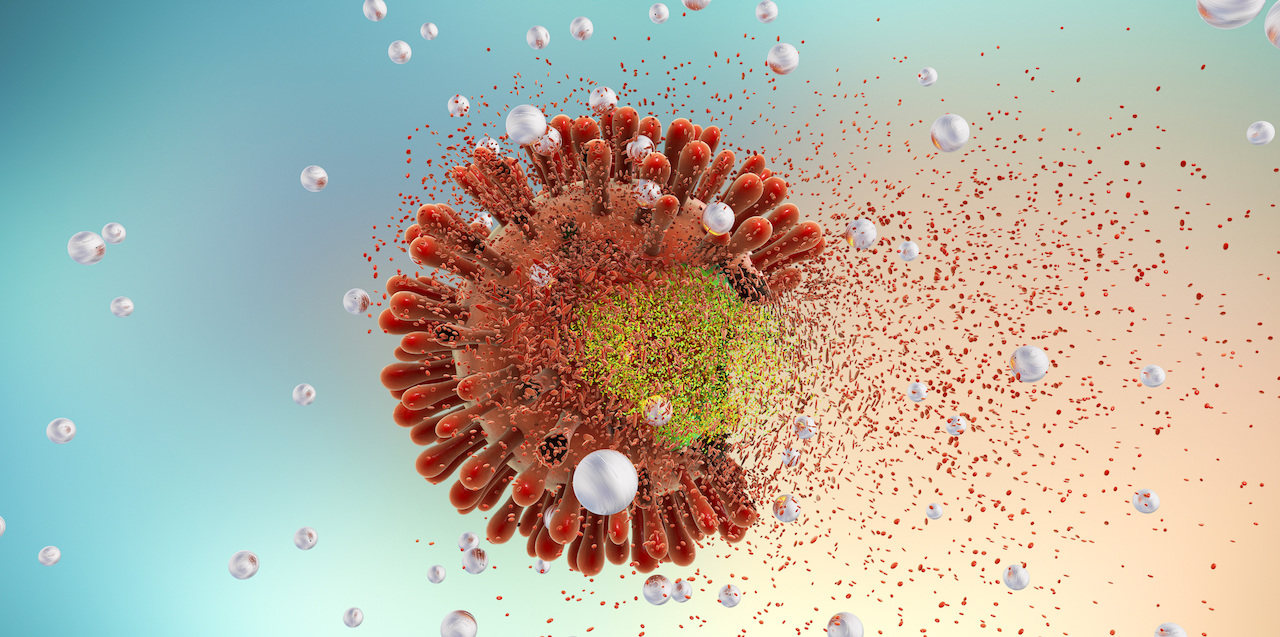The HIV virus is one that attacks the body’s immune system and, without proper treatment, effectively destroys the body’s ability to fight off diseases. Once your immune system reaches a stage where it can no longer fight off infection, HIV becomes AIDS. And while there is no known cure for HIV or AIDs, ARV (anti-retroviral) drugs can help prevent the HIV virus from becoming full-blown aids. With ARVS, an HIV positive person can live a normal and full life as long as they continue taking medication and lead a healthy lifestyle.
We spoke to Dr. Albert from Hello Doctor to find out more about the HIV virus. Here’s what he had to say: “For starters, HIV is NOT a death sentence, and we’re working hard to reduce the stigma around the virus and how it’s contracted and spread. The more people understand what it’s really about, the better.”
With that in mind, let’s take a closer look at the causes, symptoms and treatment options available for HIV.
What Causes HIV?
HIV CANNOT be spread by:
- Drinking from the same cup as an HIV positive person
- Using the same cutlery or crockery as an HIV positive person
- Using the same towels as an HIV positive person
- Sharing a toilet with an HIV positive person – these are all common myths.
HIV IS spread by:
- Using/sharing infected needles
- From mother-to-child during pregnancy or delivery
- If infected blood enters your bloodstream through an open wound
- Through unprotected sex with an HIV positive person
What Are The Symptoms of HIV?
The symptoms of HIV change over time, as the virus develops and spreads through the body. The first symptoms can show up as early as 3 weeks after a person has been infected. These initial symptoms of HIV include:
- Fever
- Night sweats
- Muscle aches
- Diarrhoea
- Swollen glands
- Skin rashes
- Headaches
Once any initial symptoms have subsided, an HIV positive person might not have any symptoms for years. Once the virus has advanced however, new symptoms appear, and these are often much more severe – especially if a person isn’t receiving ARV treatment.
More severe HIV symptoms include:
- Significant weight-loss
- Swollen glands
- Easy bruising and slow healing
- Skin rashes
- Oral thrush
- Vaginal discharge
- Shingles
- Sore throat
- Recurring fever
- Night sweats
- Persistent cough
- Pain
- Loss of muscle strength and tone
What Treatment Options Are There For HIV?
Although there is currently no known cure for HIV/AIDS, an ARV (ant-retroviral) drug treatment plan is very effective at helping ensure the infection does not get worse or develop into full-blown aids. ARVs, when taken exactly as prescribed, are used to stop the spread of the HIV virus in the body and help restore the body’s immune system.
As we said, the treatment plan is very effective, but a person needs to follow the plan very carefully and make sure they eat a healthy, balanced diet. Failure to stick to the plan can cause the HIV virus to become drug-resistant, which renders the ARVs ineffective.
How Can I Reduce My Risk Of Contracting HIV?
- Know your HIV status, and tell your partner – it’s important to be honest
- Abstain from sex altogether
- Unless you are in a monogamous, faithful relationship and you both know your HIV status, you should always use a condom each time you have sex
Speak To A Doctor About HIV
If you or someone you know is HIV positive, and you’d like to find out more about healthy eating, treatment and how to avoid spreading the disease, remember you can speak to one of our doctors right now. All you need to do is register for Hello Doctor, and download the app.
Questions To Ask Your Doctor
- What are the different types of treatment available?
- When does a person start treatment?
- What lifestyle changes will be beneficial?
- What Cipla medication can be prescribed if you are HIV+

